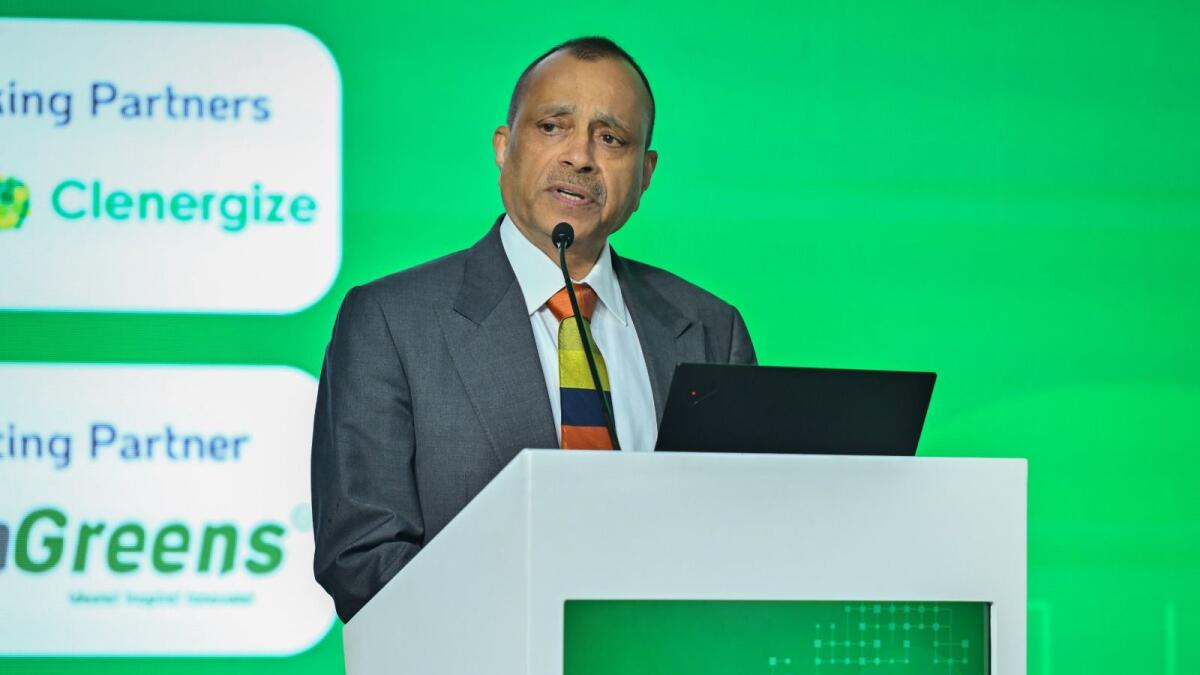To achieve the UAE’s Net Zero goal by 2050, a multi-pronged approach involving both the public and private sectors is crucial, as highlighted by Eugene Mayne, founder and group CEO of Tristar, during the ‘Journey to Net Zero Forum’ organized by Khaleej Times. Mayne emphasized the need for a collective effort and shared vision to prioritize the health of the planet alongside economic growth. He stated that the journey to Net Zero is not just a destination but a commitment to safeguard the environment for a sustainable and prosperous world for all.
Mayne also explained that Net Zero does not mean eliminating all emissions but reducing carbon emissions as much as possible and offsetting any remaining emissions through actions like reforestation or carbon capture and storage. He stressed the importance of maintaining a balance as excess greenhouse gases in the atmosphere are the primary drivers of global warming, leading to more severe climate events. According to UN Climate Action, the global temperature increase needs to be limited to 1.5°C above pre-industrial levels, requiring a 45% reduction in emissions by 2030 and reaching Net Zero by 2050.
Mayne identified seven key strategies to drive climate action, including decarbonizing energy through a transition to renewable sources, electrifying transport, making industries green through innovation and waste minimization, promoting sustainable agriculture and land use, effective carbon capture and removal methods, encouraging behavioral and societal changes, and promoting a circular economic model to reduce waste and keep resources sustainable. These strategies are essential for achieving Net Zero emissions by 2050 and mitigating the effects of climate change.
The transition to renewable energy sources such as wind, solar, and hydroelectric power is crucial to decarbonizing energy and reducing reliance on fossil fuels. The electrification of transport, shifting to electric vehicles, improving public transportation, and developing infrastructure for cycling and walking are vital steps in reducing emissions in the transportation sector. Making industries green through innovations in materials, energy efficiency, and carbon capture technologies will be key in minimizing waste and reducing emissions.
Promoting sustainable agriculture practices, protecting forests, and restoring degraded lands are important for sustainable land use and reducing emissions. A shift to a plant-based diet can also significantly contribute to lowering emissions. Effective carbon capture and removal methods, including natural approaches like reforestation and technological solutions like direct air capture and storage, are essential in offsetting remaining emissions. Encouraging sustainable consumption patterns, reducing waste, and fostering a culture of environmental stewardship are crucial in promoting behavioral and societal changes towards a more sustainable future.
Promoting a circular economic model that emphasizes reduce, reuse, and recycle is key in eliminating the linear model of ‘take, make, and waste’ and ensuring resources are kept sustainable. This model promotes the efficient use of resources and minimizes waste, contributing to a more sustainable and environmentally friendly economy. By implementing these seven key strategies and adopting a collaborative approach involving both the public and private sectors, the UAE can work towards achieving its Net Zero goal by 2050 and creating a sustainable future for all.








